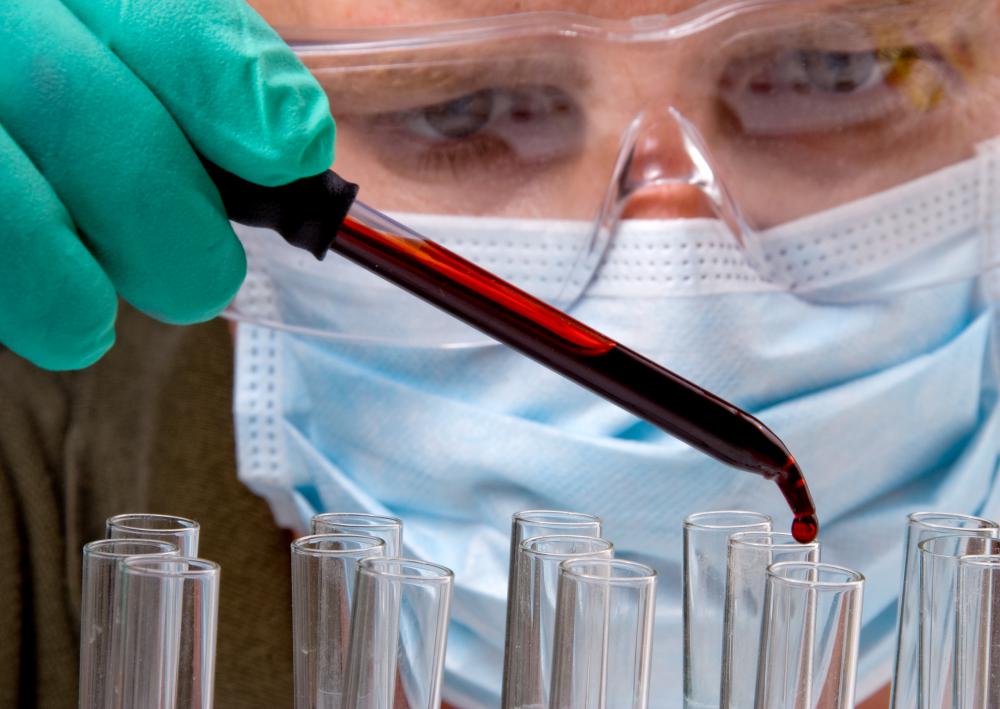At TheHealthBoard, we're committed to delivering accurate, trustworthy information. Our expert-authored content is rigorously fact-checked and sourced from credible authorities. Discover how we uphold the highest standards in providing you with reliable knowledge.
What is Immunogenetics?
Immunogenetics is a branch of molecular biology which is concerned with the interactions between inheritance and immunity. It has a number of applications, with one of the most important being transplant medicine. Immunogeneticists can work in labs, analyzing samples of tissue and blood products, and they can also work in research, education, and genetic counseling. Many professionals in this field hold graduate degrees, and some have completed postgraduate work in immunogenetics.
The immune system is very complex. While people acquire immunity throughout life in response to exposure, some aspects of the immune system are inherited. This is the area which immunogenetics focuses on, looking at inherited traits and immunity. Researchers also look at what happens when genetics goes wrong, and someone is born with a faulty immune system.

One area of particular interest is histocompatibility. This term refers to a situation in which tissue or blood products from one person can safely be transplanted into another because the two share antigens. The donor's body will be less likely to reject or react badly to the donor material because it recognizes it, at least in part. When someone needs an organ or tissue transplant, histocompatibility studies are performed to find the best possible match.

Matching donor tissue, organs, blood products, and so forth is not as simple as matching blood types. Even within a blood type, there are some natural variations, and histocompatibility can actually be extremely complicated. This is why doctors sometimes refer to people as “perfect” or “less than ideal” matches, illustrating the variations uncovered during histocompatibility studies. Ideally, a perfect match will be used, but this may not always be an option, in which case a less than ideal match will be used, especially if the patient is running out of time.

The tracing of genetic inheritance involves the study of DNA and the mapping of the human genome to find out where traits of interest are located. This information can also be used to learn about the mechanisms of inheritance, including the mechanisms of mutations which cause natural variations. Using immunogenetics, people can also learn more about individuals from various regions of the world, as many populations have developed minor genetic adaptations to help them survive in their environment.

Many colleges and universities offer molecular biology programs which may have a focus on immunogenetics for students who are interested. People who think that they might want to pursue this field may consider looking up the current leaders in the field to see where they went to school, as this information could be useful when applying to university or college.
AS FEATURED ON:
AS FEATURED ON:















Discuss this Article
Post your comments